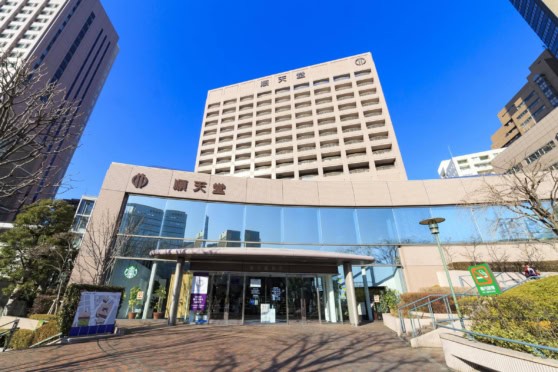International Health Insurance
Gain valuable insights and practical tips for navigating international health insurance while living abroad. From coverage details to expert advice, this comprehensive guide helps travelers…

International medical cover for expats and their families.
Medical and trip cancellation coverage for international travel.
Life insurance for globally mobile individuals living or working abroad.
Comprehensive international medical coverage for groups.
Medical, accident, and liability protection for global travel.
Financial protection for employees worldwide.
Most Popular Country Guides
Healthcare, insurance, and living insights to plan life and travel in each destination.
Healthcare, safety, and practical guidance for living abroad.
Tips and guidance for safer, smarter international travel.
Resources for global mobility, HR, and international teams.
Learn all you need to know about healthcare in Japan, including how to access care and navigate health insurance as a visitor or expat.


Japan is often listed as the country with the longest life expectancy. This is partly due to the high quality of medical care available to the public. Unlike many others, Japanese healthcare prioritizes preventative rather than reactive care.
All citizens and residents of Japan are eligible to use the public system, including foreigners who intend to stay in the country for over three months. However, treatment is not completely free, and many expats choose to buy supplemental health insurance to ensure they are covered while living in the country.
To help you better understand healthcare in Japan, this article explains how the public system works, who is eligible, and the role of private insurance while highlighting key challenges and recent developments.

Japan’s healthcare system is known for being one of the best in the world, ranking 13th globally in CEOWORLD’s 2024 Health Care Index. It provides quality care that is affordable and accessible to nearly everyone in the country.
Notably, the system heavily focuses on preventative care, such as early detection and routine medical check-ups, which helps people stay healthy and live longer.
As a result, Japan often ranks at the top for life expectancy, with men living an average of about 81 years and women around 87 years.
Japan has a public healthcare system available to all residents, including tourists and foreigners staying longer than three months.
While not completely free, it covers 70% of costs after monthly premiums. Many people buy private insurance for the remaining 30%, and prices are regulated.
Enrolling in the public healthcare system can take time for foreigners who are moving to Japan. Because of this, many choose private international insurance to ensure they have coverage during the waiting period.
Additionally, private plans often provide translation services, which are helpful due to the lack of English-speaking medical staff in many areas.
This combination of public and private healthcare helps ensure everyone can access the care they need.
The Japanese healthcare system consistently rates among the best in the world. However, as mentioned, while the public system is modern and accessible, it doesn’t completely cover healthcare costs.
Patients have to pay around 30% of their medical fees, depending on their income level. Due to this, most people tend to carry private insurance.
These plans generally play a supplementary role, offering critical illness benefits and additional coverage.
In Japan, for-profit organizations are not allowed to run hospitals or clinics. Physicians make the governing and administrative decisions in hospitals and must also own and operate clinics.
The for-profit healthcare industry is primarily focused on elective and cosmetic procedures.
Overall, the Japanese healthcare system offers an excellent standard of public healthcare. There is a strong emphasis on preventative care, including vaccination programs, prenatal care, and critical illness prevention.

The system is also regularly reviewed, with medical fees set by a government committee that includes physicians.
This committee reviews and adjusts fees every two years to respond to economic changes, keeping healthcare affordable.
These regular updates also help prevent fraud related to specific services, making it less lucrative for prescribing physicians to over-recommend particular tests.
Japanese physicians and nurses are not required to go through license renewals. If medical staff members aren’t required to continue their education, there’s a chance they might not be up to date on the latest medical advances and best practices.
The majority of residents in Japan do not have a family physician. Most people tend to go directly to the specialist they need. Patients with multiple symptoms turn to hospitals, where many specialists work.
This leads to overcrowded emergency rooms filled with non-urgent cases, contributing to longer wait times. In some unfortunate cases, patients have died after multiple hospitals refused to admit them.
Additionally, the country lacks a robust mental healthcare system. Practices discontinued in other countries, such as isolation or restraints, are still common in Japan.
While the public system does offer some mental health support, treatment remains stigmatized, which can discourage people from seeking help.
As mentioned, Japanese citizens have one of the longest life expectancies in the world. However, the country’s healthcare system is constantly looking at ways to serve its large and aging population better.
By 2050, it is projected that 40% of Japanese people will be over 65 years old. This increasing number of seniors will inevitably strain the healthcare system.
Japan also has a unique situation where physicians prefer to work in rural locations over urban ones. Doctors claim rural assignments offer a high quality of life and a less stressful work environment. This preference makes the issue of hospital wait times in urban centers even more difficult to tackle.
Lastly, language barriers are a significant problem for non-native Japanese speakers. While many hospitals around the world have English-speaking staff, this is not always the case in Japan.
Many foreigners are surprised to learn this can be an issue even in large metropolitan areas. Hiring an interpreter for medical appointments is advisable, and some insurance plans that include translation services could be beneficial.
Yes, the Japanese medical system is provided through universal healthcare. Japan’s first form of public healthcare began in 1927 with an employee health plan. By 1961, it had evolved into a system of universal coverage available to locals, foreigners, and expats.
The public healthcare system is known as Social Health Insurance (SHI). SHI applies to everyone who is employed full-time with a medium or large company. Approximately 5% is deducted from salaries to pay for SHI, and employers match this cost.
Anyone who is not qualified under SHI receives coverage through the National Health Insurance (NHI) plan. Those who work for a small business, are self-employed, or are unemployed are eligible for the NHI plan.
Most expats and digital nomads would be categorized as self-employed and need to pay into the NHI. The amount you pay is based on your income.
Japan’s healthcare system is decentralized. This means that its 47 regions (called prefectures) are in charge of making and following healthcare rules and budgets. This allows local governments to adjust their plans based on the health needs of their communities.
In addition to general healthcare services, local governments also oversee nursing care programs. People aged 40 and older pay an extra 2% into their health insurance plans to help fund long-term care services.
This money is important for covering costs related to nursing homes and other long-term care, especially as Japan’s population is aging.
As the number of elderly people increases, the need for nursing and long-term care services is expected to grow significantly.
The extra 2% fee for those over 40 shows that Japan is trying to ensure that there are enough resources to meet these needs.
The government generally pays 70% of healthcare costs, while patients cover the rest. The patient’s payment depends on their family size and income level, but it should never exceed 30% of the bill.
If you are eligible for coverage through SHI, accessing healthcare in Japan is relatively easy. This is mainly because employers take care of the paperwork for you!
However, the process is more tedious for NHI. You’ll need to visit your regional NHI office to handle the paperwork. If you move, you must re-register with your new nearest regional office.

Once you get your Japanese Health Insurance card, you can use the public system. Most residents do not have a primary general practitioner since most physicians tend to have a sub-specialty. When you need care, you’ll go directly to a doctor who specializes in your specific needs.
With insurance, an average consultation costs between $33 and $66 USD (5,000 and 10,000 JPY) at a clinic and $66 and $100 (10,000 and 15,000 JPY) at a hospital. Without insurance, a consultation can vary between $132 and $330 (20,000 and 50,000 JPY).
Keep in mind that language barriers can be a significant issue in Japan. Therefore, hiring an interpreter for appointments is a smart move. You might also want to consider buying an insurance plan that includes translation services.
Foreigners staying in Japan for more than three months can register with the NHI. Meanwhile, those working for a larger company can apply for the SHI.
Expats waiting for their paperwork to be processed often find themselves in limbo. Therefore, it’s advisable to buy private international health insurance to ensure coverage while waiting for access to the public system.
Japan’s health insurance system does not cover tourists and other short-term visitors. If you’re just visiting, you should buy a travel insurance plan to cover any medical expenses. To better understand your options, read our article on Japan Travel Insurance for Visitors.
While international citizens may be eligible to use public healthcare in Japan, most tend to carry supplemental private insurance.
For a more in-depth understanding of your options, read our article on Health Insurance in Japan for Foreigners.
Understanding how to navigate Japan’s healthcare system is essential for both residents and visitors, as it plays a vital role in the country’s high life expectancy and emphasis on healthy living.
If you are moving or traveling to Japan, take the time to learn about your healthcare options. Familiarizing yourself with the public healthcare system, exploring private insurance plans, and understanding how to access medical care will help ensure you receive the support you need while enjoying your time in this remarkable country.
By doing so, you can fully appreciate everything Japan has to offer while living a lifestyle that promotes long life and well-being.